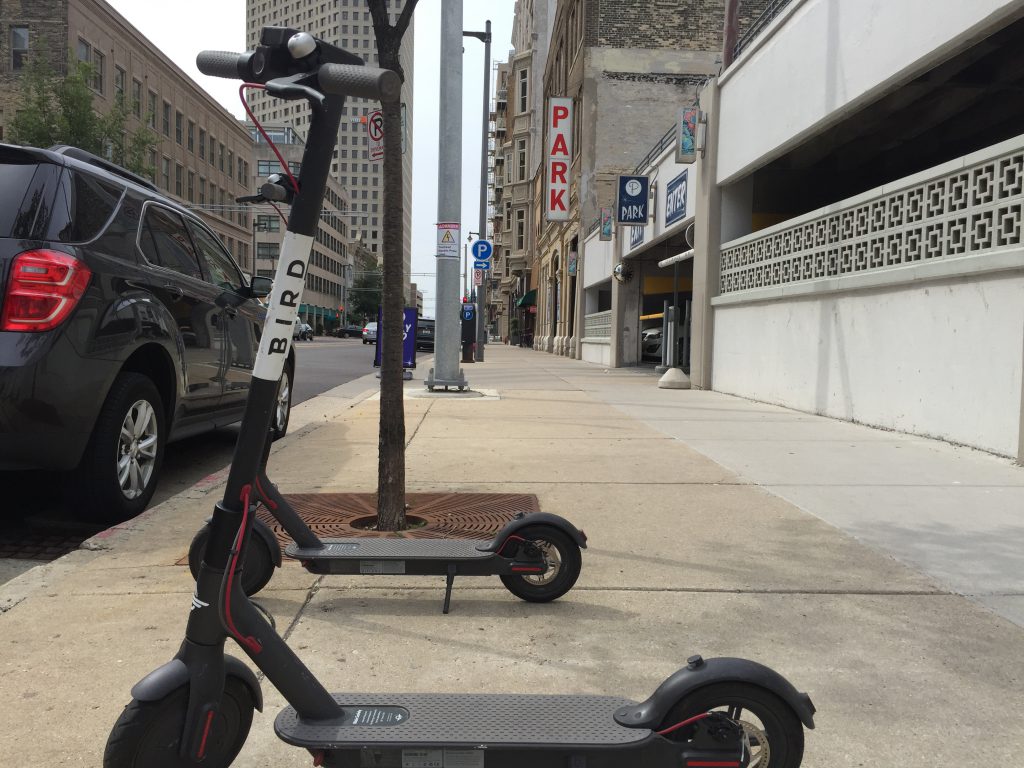Scooters Are Poorly Designed for Urban Life
All the city news you can use.
Every day at The Overhead Wire we sort through over 1,500 news items about cities and share the best ones with our email list. At the end of the week, we take some of the most popular stories and share them with Urban Milwaukee readers. They are national (or international) links, sometimes entertaining and sometimes absurd, but hopefully useful.
Spending all seasons outside: Residents of the Pacific Northwest might need some inspiration to get them through this winter in the time of COVID-19. While many are cooped up in their homes, there will be some that venture outside for more space. But this is something Norwegians have known since way before the pandemic, the many ways to continue life outdoors into the winter. It’s called friluftsliv, pronounced “free-loofts-leev,” or “free air life.” (Megan Burbank | Seattle Times)
How to design a green community: A developer in Ann Arbor Michigan is building a community that follows the local codes but excels at looking for loopholes to make for a more environmentally friendly place. The community will be net zero electric with 1.5MW of solar power and net positive for water as well. Streets will be woonerfs with only rear home access for cars and 30% of the land will be set aside for food production. (Lloyd Alter | Treehugger)
Amazon gets tax breaks at the expense of Black communities: Amazon has built 36 warehouses around Chicago by secretly securing sweetheart tax break deals, many in Black communities. Overall $741 million in tax breaks were found by investigative reporters that learned Amazon would come into towns with deals for new warehouses and wouldn’t disclose who the tax breaks were for until after the deals were signed. (John Lippert and Natalie Moore | WBEZ Chicago)
Seoul creates natural wind paths: Seoul South Korea is embarking on the creation of wind paths in an attempt to bring fresh air into the city from mountains that generate winds in the evenings. By planting more trees along rivers and roads the city hopes to clean out particulate matter and reduce the urban heat island effect. Different trees will have different functions and the project is expected to cost around $15 million. (Sarah Wray | Cities Today)
Quote of the Week
We need a better plan for the future. Without one, the algorithmic inequality trap will be a story told not in statistics and wealth ratios, but in distress signals — smartphones hanging from trees, tent cities for the homeless, and human couriers scanning the skies for the delivery drones that spell their impending end.
–Mike Walsh in the Harvard Business Review on how algorithms are making economic inequality worse.
This week on the podcast, Matthew Lipka head of policy at Nuro joins the show to talk about autonomous deliveries.
Want more links to read? Visit The Overhead Wire and signup. (http://dtrnsfr.us/2iA8Yas)
Urban Reads
-
Congestion Pricing Cuts Air Pollution in New York City
 Dec 14th, 2025 by Jeff Wood
Dec 14th, 2025 by Jeff Wood
-
We Think We Love to Drive. But Do We Really?
 Dec 7th, 2025 by Jeff Wood
Dec 7th, 2025 by Jeff Wood
-
Can Scott Wiener Tackle America’s Housing Crisis?
 Nov 23rd, 2025 by Jeff Wood
Nov 23rd, 2025 by Jeff Wood






















